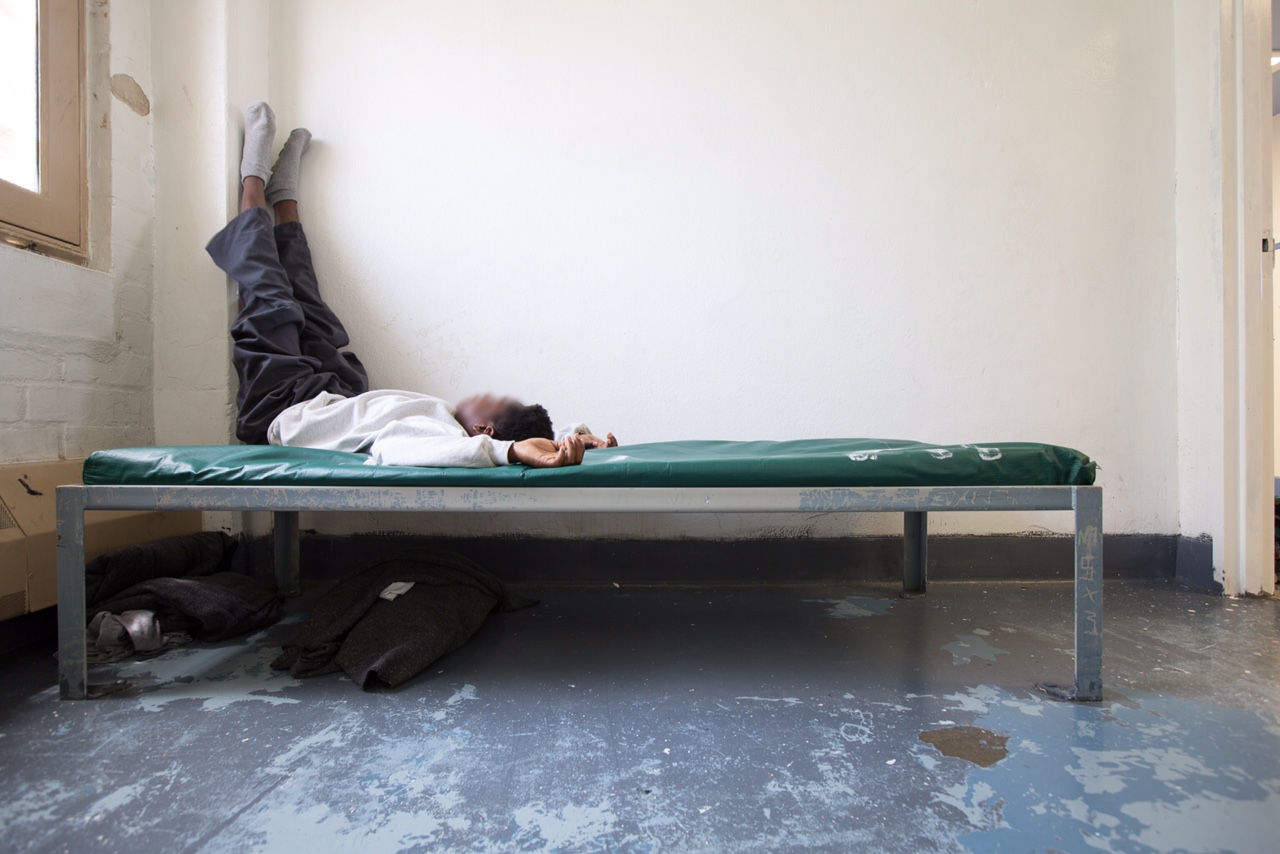This story was originally published by ProPublica.
The commissioner of the Tennessee Department of Children’s Services publicly said this month that the agency was working with lawmakers to address oversight gaps at juvenile detention facilities across the state. But behind the scenes, the department is working to water down a bill that would do just that, according to one of the bill’s sponsors and others working on the legislation.
Last year, an investigation by WPLN and ProPublica revealed that the Richard L. Bean Juvenile Service Center in Knoxville was illegally locking children alone in cells and that the facility had faced few consequences even as DCS repeatedly documented violations.
In response, one Democratic and two Republican state lawmakers drafted proposed legislation that would give an independent state agency the power to require changes at facilities that violate state standards, effectively forcing DCS to act.
[Related: Hundreds of seclusions were “Voluntary.” Some kids don’t see it that way.]
As it stands, DCS inspects and writes reports on youth detention centers across the state. If inspectors document persistent problems, DCS says, it can freeze or slow admissions, decrease capacity or refuse to approve a license. DCS said it has used those interventions at other facilities but never at the Bean Center.
DCS is pushing for different language that would strip the independent agency from having enforcement power and leave DCS in charge of deciding how to respond to problems.
The bill is scheduled for discussion in both the Tennessee House and Senate on Tuesday.
DCS declined to comment on the legislation but said it is working to address the problems at the Bean Center.
WPLN and ProPublica found that inspectors documented that the Bean Center had been improperly using solitary confinement for years. While DCS noted the violations in its reports, the department failed to effectively intervene. DCS says it cannot revoke the Bean Center’s license, but it has not approved its renewal either.
“The Bean Center has been in a nonapproved status for quite some time,” DCS Commissioner Margie Quin told lawmakers in a hearing this month. “We’re in that facility on a quarterly basis and continue to work with them.”
But some Tennessee lawmakers and child welfare advocates say it’s not enough to simply document that a facility is out of compliance with state standards. In a letter in November, 14 Democratic lawmakers called on DCS to intervene at the Bean Center and called for the superintendent and namesake of the facility, Richard L. Bean, to lose his job.
Bean did not respond to a request for comment.
“Why is there no accountability, and why isn’t there any attempt to remedy that?” asked state Sen. Heidi Campbell, D-Nashville, one of the sponsors of the bill. She said in the past DCS has improved with oversight. “But right now, there’s nothing,” she said. “It’s just the wild, wild west.”
Despite acknowledging the ongoing problems inside the facility, DCS continues to contract with the Bean Center to place children there, paying about $175 per day per kid.
“Although the facility is not currently in an approved status, there is nothing to indicate conditions at the facility are unsafe,” Ashley Zarach, DCS communications director, said in an emailed statement. DCS said the Bean Center is no longer using seclusion and that its current violations are largely clerical. “We are holding approval to ensure the facility updates its policy and schedules an annual fire inspection,” Zarach said.
But that arrangement is part of the reason lawmakers like Campbell want a third party involved. In the time DCS has been licensing juvenile detention centers in the state, it said, it has never terminated a license.
The original draft of the bill gave enforcement powers to the ombudsman at the independent state agency, the Tennessee Commission on Children and Youth. The ombudsman’s office has existed since 1996 to respond to individual complaints about DCS, but it does not have enforcement power. The commission already has access to juvenile detention centers to monitor federal standards but not state standards.
Kylie Graves, policy director at the commission, declined to comment on the bill, saying, “We are going to let the General Assembly go through the legislative process.”
If a facility is in violation and doesn’t follow the ombudsman’s recommendations, the original draft would force DCS to suspend the facility’s license or, for detention centers like Bean’s, stop placing kids there until the violations are fixed.
But those enforcement mechanisms are no longer included in the DCS version.
Instead, the ombudsman would notify the facility of the problems, and if the facility doesn’t comply within a year, DCS would be notified in writing. Then “the department shall provide the ombudsman with an update on actions taken to remedy the findings by December 1, 2025, and annually thereafter,” the agency’s amendment says.
“If you de-fang it enough, you’re not going to have a useful piece of legislation,” Campbell said.
The DCS version does not detail what exactly would happen after that to a facility that is routinely out of compliance, as the Bean Center was. But it would require the ombudsman to report violations publicly to the General Assembly on a regular basis, offering some public accountability.
State Sen. Kerry Roberts, a Republican sponsor of the bill, said he is not surprised that a state agency would push back against oversight legislation of this size and scope.
“DCS is probably arguing right now, ‘Hey, a little bit of flexibility for us is a good thing,’” Roberts said. “And I think some legislators are looking at it and say, ‘Well, we’re not sure that we agree with that, because we want to know that certain standards are being met in every situation.’”
Campbell said incremental progress is better than nothing.
“I would love to have a much stronger way to approach this,” she said, “but that having been said, as we say all the time around here, let’s not let the perfect be the enemy of the good.”
***
Paige Pfleger covers criminal justice for WPLN News. Previously she has worked in Central Ohio at WOSU News, covering criminal justice and the addiction crisis, and was named Ohio’s reporter of the year by the Associated Press in 2019. Her work has appeared nationally on NPR, The Washington Post, Marketplace, and PRI’s The World.
ProPublica is a Pulitzer Prize-winning investigative newsroom. Sign up for The Big Story newsletter to receive stories like this one in your inbox.






























